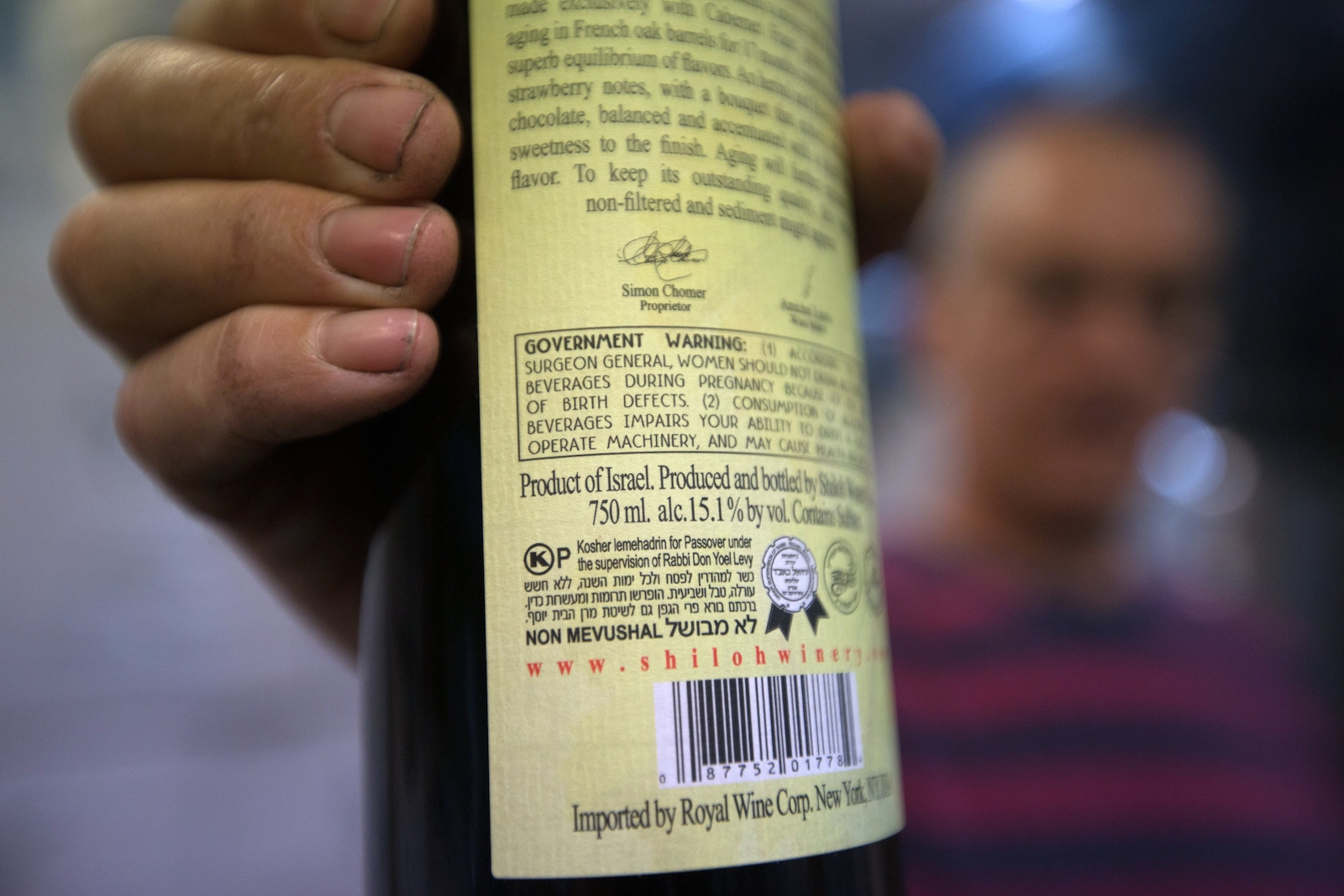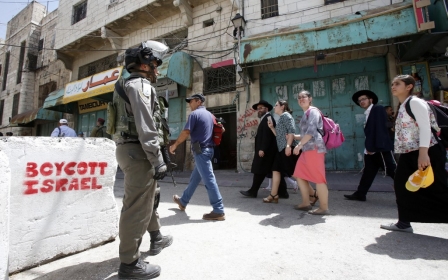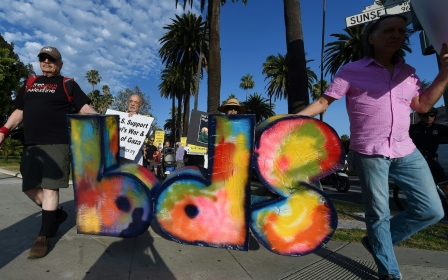US accuses European court of showing 'anti-Israel bias' in settlement labels ruling

The United States has accused the European Union's top court of displaying an "anti-Israel bias", after the European Court of Justice ruled this week that Israeli settlement products must be clearly labelled.
The ECJ said on Tuesday that foodstuffs coming from land occupied by Israel "must bear the indication of their territory of origin, accompanied, where those foodstuffs come from an Israeli settlement within that territory, by the indication of that provenance".
That labelling would allow consumers to make choices based on "ethical considerations and considerations relating to the observance of international law", the court stated.
A day later, the US State Department slammed the court's decision, saying it would "encourage, facilitate, and promote" the Boycott, Divestment and Sanctions (BDS) movement for Palestinian rights.
The BDS movement seeks to pressure Israel to end its rights abuses against Palestinians.
New MEE newsletter: Jerusalem Dispatch
Sign up to get the latest insights and analysis on Israel-Palestine, alongside Turkey Unpacked and other MEE newsletters
"The United States unequivocally opposes any effort to engage in BDS, or to otherwise economically pressure, isolate, or otherwise delegitimise Israel," Morgan Ortagus, a State Department spokeswoman, said in a statement on Wednesday.
The case
The European court's decision came four years after the European Commission released guidelines to label Israeli settlement products sold in EU countries.
Those 2015 recommendations stated that goods coming from Israeli settlements in the occupied territories must be clearly marked as such.
The EU left it up to member countries to enforce the labelling requirements, however, and they have since been loosely implemented.
The case the ECJ adjudicated on this week related to labelling requirements in France specifically, after Israeli settlement wine company Psagot Winery and a French group filed a legal challenge against the labelling provisions there.
However, pro-Israel groups and Israeli diplomats said they feared the decision could have wider implications for other EU nations.
More than half of all EU member states want the bloc to label products from Israeli settlements as produced in the occupied West Bank, AFP news agency reported earlier this year.
Jeremy Issacharoff, the Israeli ambassador to Germany, told Deutsche Welle after the court's ruling on Tuesday that EU member states "should honour this decision by ignoring it".
"I think that everyone should make up their own minds when they're purchasing perfectly legitimate goods, whether they want to buy it or not. I don't think you need to inject politics into everything, and definitely not into the European court," Issacharoff told the German broadcaster.
US defends Israel
The US criticism of the European court's ruling was predictable, as President Donald Trump has pursued a staunchly pro-Israel line since coming into office.
In recent years, dozens of US states have also passed, or are considering, anti-boycott legislation in an effort to stymie the BDS movement.
Despite recent pronouncements by some 2020 Democratic hopefuls, strong American support for Israel largely remains a bipartisan position in Washington.
On 11 November, US Senator Bob Menendez, the top Democrat on the Senate Committee on Foreign Relations, wrote to the EU ambassador to the US to raise concerns about the then-pending EJC labelling decision.
'The United States unequivocally opposes any effort to engage in BDS, or to otherwise economically pressure, isolate, or otherwise delegitimise Israel'
- Morgan Ortagus, US State Department
Menendez said that if the court mandated labelling requirements on EU states, "there will be serious and far-reaching implications and unintended consequences".
“The regulation in question is problematic for a number of reasons, including because it targets specific businesses based on the ethnicity and national origin of their owners," Menendez wrote in the letter.
But the ECJ said in its decision that the labelling requirements aim to help prevent customers from being misled as to the origin of Israeli settlement products.
Without clear labels, "consumers have no way of knowing ... that a foodstuff comes from a locality or a set of localities constituting a settlement established in one of those territories in breach of the rules of international humanitarian law", it said.
After the decision, the head of Psagot Winery, which filed the labelling complaint in France, welcomed the support of "many leaders in Israel and the [US], including the State Department and members of Congress".
"The winery is proud of its contribution to combatting this decision and intends to continue the struggle," Yaakov Berg said.
Middle East Eye delivers independent and unrivalled coverage and analysis of the Middle East, North Africa and beyond. To learn more about republishing this content and the associated fees, please fill out this form. More about MEE can be found here.





